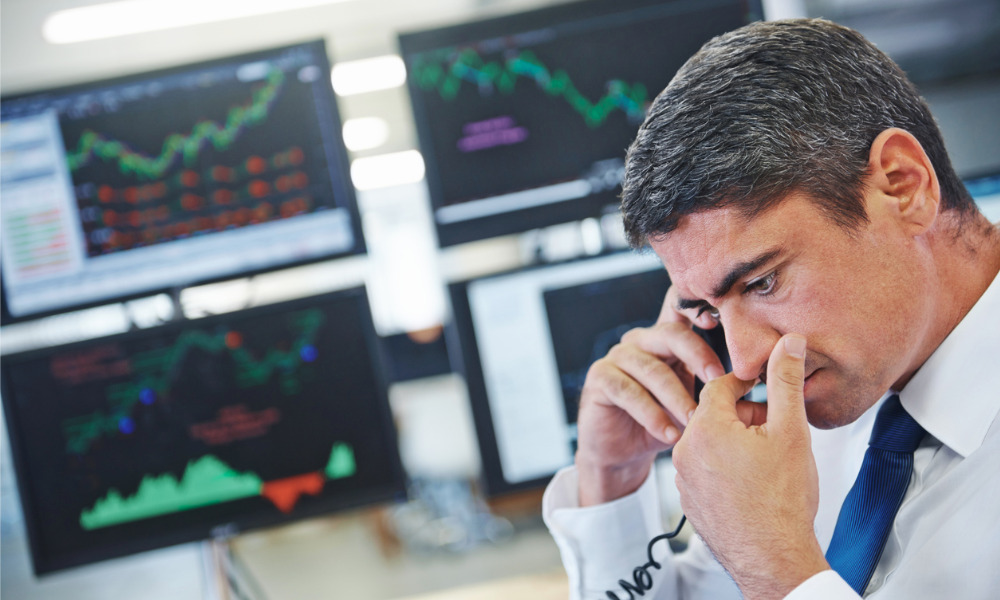AGF Management's CEO and chief investment officer argues that duration of economic shutdown will dictate recovery

It’s often been said that people shouldn’t be measured by how much they stumble, but by how they get back up. And in a way, the same can be said for the global economy as it faces recession at the hands of the COVID-19 pandemic.
Looking back on the first quarter of the year, Kevin McCreadie, CEO and chief investment officer at AGF Management, observed that since the S&P 500 reached an all-time high in mid-February, it has freefallen by as much as 35%, amid a sharp drop across almost all areas of the investing world.
“[I]t’s one of the most vicious selloffs that we’ve ever experienced,” McCreadie said in a recent blog post. “The question now is how long it lasts.”
The recent rally in the markets has provided a massive confidence boost, but he advised investors to brace for a jagged recovery similar to the aftermath of the 2008 global financial crisis. The wave of stimulus announcements from central banks and governments, as well as rebalancing by pension plans, has provided a valuable lift, but time will tell whether these and other measures have been enough to jumpstart a full-on recovery.
The next few weeks, he added, will be marked by a greater-than-usual focus on economic data, which are likely to paint a mixed picture. Some figures will reflect the relatively healthy, pre-social distancing world. Others, however, will show an uglier and more current reality; recent statistics showing millions of individuals losing their jobs and applying for unemployment benefits, both in Canada and the U.S., offer an idea of what’s to come.
“What we're dealing with here is a self-imposed shutdown of the economy,” McCreadie said. “So, it’s not surprising to see plummeting economic growth and skyrocketing unemployment numbers.”
Contending that second-quarter GDP estimates will possibly be the worst since the Great Depression, he suggested that the numbers to watch going forward will be those related to credit defaults and bankruptcies. With current stimulus measures being aimed at keeping businesses and individuals solvent and able to pay their bills, he said the big question mark now is how long the economic shutdown will remain in place.
“In other words, we can probably tolerate steep drops in GDP data or big increases in unemployment numbers, so long as it doesn’t continue to be the case months from now and the global economy stagnates longer term,” McCreadie said.
From an investing standpoint, he said the current environment presents an opportunity to “leg back into some higher-quality names”; while the equity-market indexes may retest their recent lows, some individual stocks have likely hit bottom. And with respect to asset allocation, he suggested that investors consider their exposures to fixed income as well as alternatives.
“In a volatile environment like this, it is often the short-term changes to an asset mix that lead to better outcomes in the longer term,” he said.



